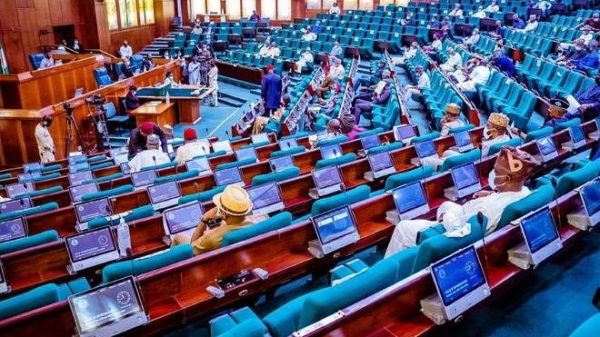TECHNOCRAT MEDIA, Abuja
A bill seeking to punish public officials who receive medical treatment abroad with government funds passes second reading at the lower chamber of the national assembly.
Sergius Ogun, a member of the lower chamber from Edo state sponsors the bill seeking an amendment to the National Health Act, 2014.
Section 46 of the act prohibits public employees from seeking medical treatment abroad using public funds — but it does not specify punishment for breaking the law.
The only exception is that if a government official needs medical treatment overseas, it must be on the recommendation of a medical board and approved by a commissioner or minister.
The section reads: “Without prejudice to the right of any Nigerian to seek medical check-up, investigation or treatment anywhere within and outside Nigeria, no public officer of the Government of the Federation or any part thereof shall be sponsored for medical check-up, investigation or treatment abroad at public expense except in exceptional cases on the recommendation and referral by the medical board and which recommendation and referral shall be duly approved by the Minister or Commissioner for Health of the State as the case may be.”
According to the legislator, the bill seeks to add a clause stating that any public officer who violates the law “shall be guilty of an offense and liable on conviction to a fine of N500 million or to an imprisonment term of seven years, or both”.
Mr Ogun said the amendment to the health act will discourage medical treatment abroad at the detriment of the country’s health institutions, TheCable reported.
“It is no news that Nigeria’s healthcare system is in a deplorable state and needs urgent attention,” he said.
“There is a paucity of infrastructure, dearth of medical personnel, poor standards, and many other challenges that need to be addressed.
“The intent of this bill is to spur public officers to pay more attention to our health care sector and take drastic steps to develop and improve on the sector.
“The poor attention being given to the country’s health sector accounts for this and has resulted in a shortage of medical doctors in the country.
“The reason for their exodus abroad is among others a lack of infrastructure in the sector, poor remuneration and government’s unwillingness to pay attention to the sector.”
The legislator said if passed into law, the “excessive medical trips of public officers abroad” will be curtailed and attention will be directed towards fixing the country’s health facilities.
Toby Okechukwu, minority leader of the house while contributing to the debate said the proposed law is in line with the “expectations of patriots and parliamentarians”.
“The bill is aimed at tackling the capital flight being experienced in the country.” He said.
Excellent journalism is expensive. It is only same that can help to build our society and country to entrench good governance, development and ensure justice for all.
We need your support your support for investigative findings and special reports to demand accountable and transparent government. DONATE today to help us stay relevant to serve your quest for accurate and authentic stories.
DONATE TO 0450702364, naira OR 0657626454, usd – GTBANK
























































